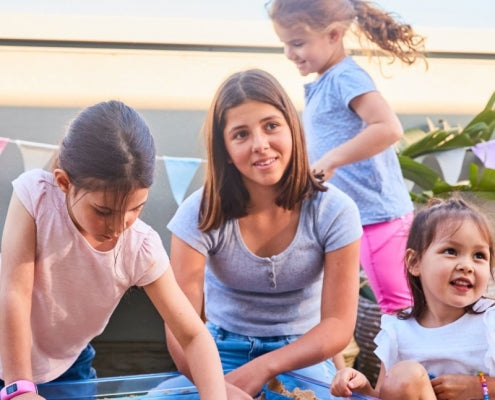
Helping children develop strong thinking skills is more important than ever. From making decisions to solving everyday problems, the ability to think critically, creatively, and flexibly gives children the tools they need to become confident, independent learners.
At Edx Education, we believe that these skills—lateral thinking, divergent thinking, and creative thinking—are best nurtured through play-based learning at home, especially in the early years.
Why Thinking Skills Matter in Early Childhood
Between the ages of 0 and 6, a child’s brain is growing at an incredible rate. During this time, experiences shape their cognitive development, which is why exposure to critical thinking toys and open-ended play is so essential.
When we encourage children to ask questions, find new solutions, or imagine different outcomes, we’re not just entertaining them we’re building the foundations of independent thought.
So, what are the different types of thinking, and how can we support them at home?
1. Lateral Thinking: Seeing Things Differently
Lateral thinking is all about solving problems in unexpected ways. It helps children to look beyond the obvious and approach tasks from different angles.
Play idea: Set up a simple puzzle or building challenge using Linking Cubes or MyGears®. Ask your child to create a bridge, but don’t tell them how. Let them experiment with trial and error. This process encourages them to think laterally—finding solutions through creative exploration, not instruction.
Toy tip: Toys that don’t have one set outcome are perfect for lateral thinking. Try Rainbow Pebbles®, where there’s no right or wrong—just possibilities!
2. Divergent Thinking: Many Answers, Not Just One
Divergent thinking is the ability to generate multiple ideas or solutions. It’s a key part of creativity and problem-solving and is essential in early years learning.
Play idea: Give your child a collection of Pattern Blocks and ask, “How many different animals can you make?” You’ll be amazed at what they come up with maybe a dragon, a fish, or a creature from their imagination.
Toy tip: Keep a basket of open-ended materials handy such as shapes, counters, or even cardboard tubes. Encourage storytelling and inventiveness through role play or art.
3. Creative Thinking: Imagination in Action
Creative thinking combines imagination, emotion, and logic to generate something new. It’s not just for artists it’s a life skill that helps children express themselves and understand the world.
Play idea: Use Dancing Ribbons, music, or sensory play materials to create a “story dance.” Ask your child to express a feeling or event using movement and props. This blends emotional expression with problem-solving and creativity.
Toy tip: Sensory-rich toys can be incredibly helpful here. As mentioned in our blog “Creating Calm: Using Sensory Play to Support Emotional Wellbeing at Home”, sensory play supports both creative and emotional development. Try sand, water trays, or textured tiles to bring stories and ideas to life.
Encouraging Thinking Skills at Home
You don’t need expensive gadgets to develop your child’s thinking skills. What’s most important is creating time and space for open-ended play, asking curious questions, and modelling flexible thinking yourself.
Here are a few quick tips:
-
Ask “What if…” questions to spark new ideas
-
Celebrate effort, not just success
-
Let your child lead the play
-
Rotate toys to inspire fresh thinking
Thinking Toys That Grow With Your Child
At Edx Education, our range of problem-solving toys is designed to grow with your child from toddler to school age. Whether it’s Rainbow Pebbles®, Linking Cubes, or Number Rods, our toys encourage exploration, experimentation, and thinking outside the box.
By integrating play into your daily routines, you’re not only supporting your child’s learning you’re empowering them to become resilient, thoughtful learners who aren’t afraid to try new things.
Let’s Play, Learn & Create—Together
Building thinking skills doesn’t require a classroom or a textbook. It just takes time, play, and the right tools. Visit Shopedx to explore our full range of critical thinking toys and discover free downloadable activities to support creative thinking in early years.
Looking for more ideas? Tune in to the Play, Learn & Create with Edx Education podcast, where we dive deeper into topics like emotional resilience, sensory play, and independent learning.



